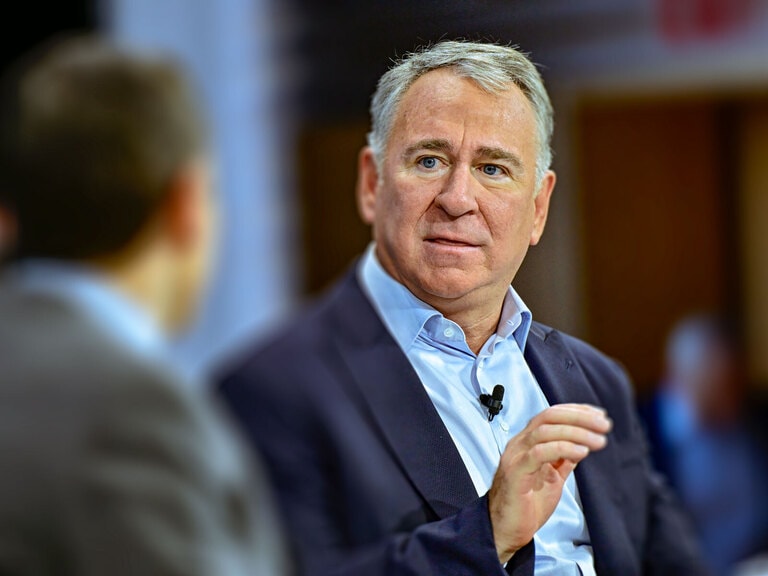Oil and gas stocks have suffered huge share price and revenue declines since the pandemic began. Lockdowns around the world and travel restrictions have meant demand for oil has plummeted and producers were forced to pay to dispose of their oversupply. The industry’s loss has been renewable energy stocks’ gain — they’ve been on an incredible run this year.
Hydrogen fuel stock Plug Power [PLUG] has soared 674.4% year to date through 1 December and 867.2% since bottoming out at $2.53 during the March market sell-off. Plug Power’s share price is currently trading just 3.3% below its all-time high of $25.29. A brief decline on 17 November following an announcement that the company is to make 38 million more shares available at a discounted $22.25 has been followed by another uptick.
Green hydrogen producer Bloom Energy’s [BE] share price is up 229.6% since the start of the year to 1 December and 720.7% since plunging to a 52-week low of $3. The company’s share price is 5.3% below its 52-week high of $23.38, at which it peaked on 9 October.
Another fuel cell competitor, FuelCell Energy [FCEL] has gained 260.6% year to date during the same period and registered a huge 1785.4% gain since dropping to a 52-week low of $0.48 on 10 December last year. FuelCell’s share price reached a 52-week high on 17 November, not on any specific news, but simple, positive sentiment.
1785.4%
FCEL gains from 52-week low
Solar stocks have been shining bright too. First Solar [FSLR] is up a comparatively modest 62.7% since the start of the year and 219.8% since falling to a 52-week low of $28.47 back in March (as of 1 December). First Solar’s share price hit a 52-week high of $97.93 on 28 October, but is currently trading 7% below that.
A boost for infrastructure
Demand for Brent crude isn’t expected to recover to its pre-coronavirus levels until the end of 2021 or 2022. Oppenheimer’s Ari Wald recently told CNBC’s Trading Nation that the oil and gas sector is trading at its lowest point relative to the S&P 500 in decades. Wald doesn’t see a turnaround coming in the near term.
As oil and gas’ bearish trend drags on, renewable stocks are likely to continue their charge. Recently published research by the International Energy Agency (IEA) showed that, while total energy demand has fallen this year, the resilience has helped bolster renewable energy usage. The agency said global renewable energy use was 1.5% higher year over year in Q1 2020, and suggested that total global use is expected to rise by 1% for the whole year. Meanwhile, the IEA expects renewable energy electricity generation to rise by nearly 5% in 2020.
Joe Biden’s election win and news of a COVID-19 vaccine breakthrough were catalysts that sent renewable stocks flying on 9 November on the hopes that travel will return to some sort of normalcy, electric vehicle (EV) sales will rise, and Biden will invest heavily in the required infrastructure.
Plug Power closed 7.7% higher on 9 November, while Bloom finished 6.1% up on 6 November’s close. Even though some renewable stocks have since pulled back, the sudden influx of investors rotating and pouring money into renewables is an indicator of which companies they see as potential beneficiaries of Biden’s presidency.
The residual effects of Biden’s win are partly what fuelled Blink Charging’s [BLNK] share price to surge 45.9% over 16 and 17 November. The EV charging equipment and services provider had also announced a new cable management solution for its 200 charging stations.
In possibly the strongest sign that renewables will replace big oil and fossil fuels, NextEra Energy [NEE] overtook Exxon Mobil [XOM] as the most valuable energy company in the US in early October. NextEra currently operates power plants, but it is gradually transitioning away from fossil fuels to wind, solar and energy storage.
Steve Fleishman, research analyst at Wolfe Research, wasn’t surprised by this. Biden’s environmental plans will give the EV industry a jolt. Investing in charging infrastructure will be crucial to making EV ownership more viable and accessible, and NextEra will be a leader in providing the clean electricity needed.
“The same thing as when Tesla [TLSA] went over the market cap of traditional automakers. One thing we like to say is if Tesla is worth what it is right now, that’s a lot of electric vehicle sales that need to be fuelled by electricity,” Fleishman told CNBC in early November.
"One thing we like to say is if Tesla is worth what it is right now, that’s a lot of electric vehicle sales that need to be fuelled by electricity" - Steve Fleishman
Wind of change
While a wind of change is propelling renewable stocks to new highs, there could be short-term volatility ahead. Especially as pre-pandemic travel levels could return soon, along with a greater demand for oil.
Renewable stocks have outperformed in the run-up to the US election, where the impact of Biden’s win was likely to have already been priced in, Paul Coster, analyst at JPMorgan, said in a recent note seen by Business Insider. Coster added that renewable stocks would be better suited to long-term investors given that they’ll return more value as more renewable energy infrastructure is rolled out in the coming years.
Part of Biden’s plan is to increase uptake of solar technology — during his campaign he suggested the installation of eight million home solar panels. He’s also keen to promote products manufactured in the US. This will be a boost for the majority of solar stocks, but there is a caveat.
The US president-elect could choose to repeal tariffs on imported solar panels (Section 201) introduced by US president Donald Trump as part of the US’ trade war with China, according to Pavel Molchanov, director and equity research analysts at Raymond James. The tariffs only apply to producers of crystalline silicon modules and one of the companies affected is First Solar, which has manufacturing locations outside the US in Malaysia and Vietnam.
“If Section 201 is gone, the thin film exemption loses its value, and multiples might compress,” wrote Molchanov in a note to clients, as reported by MarketWatch. First Solar received a double-downgrade from Molchanov, who has assigned the stock an underperform.
That said, without the US Congress — control of which will be decided in January by a runoff in Georgia — there will unlikely be a Green New Deal, meaning Biden’s ambition for renewables could be limited.
Disclaimer Past performance is not a reliable indicator of future results.
CMC Markets is an execution-only service provider. The material (whether or not it states any opinions) is for general information purposes only, and does not take into account your personal circumstances or objectives. Nothing in this material is (or should be considered to be) financial, investment or other advice on which reliance should be placed. No opinion given in the material constitutes a recommendation by CMC Markets or the author that any particular investment, security, transaction or investment strategy is suitable for any specific person.
The material has not been prepared in accordance with legal requirements designed to promote the independence of investment research. Although we are not specifically prevented from dealing before providing this material, we do not seek to take advantage of the material prior to its dissemination.
CMC Markets does not endorse or offer opinion on the trading strategies used by the author. Their trading strategies do not guarantee any return and CMC Markets shall not be held responsible for any loss that you may incur, either directly or indirectly, arising from any investment based on any information contained herein.
*Tax treatment depends on individual circumstances and can change or may differ in a jurisdiction other than the UK.
Continue reading for FREE
- Includes free newsletter updates, unsubscribe anytime. Privacy policy





